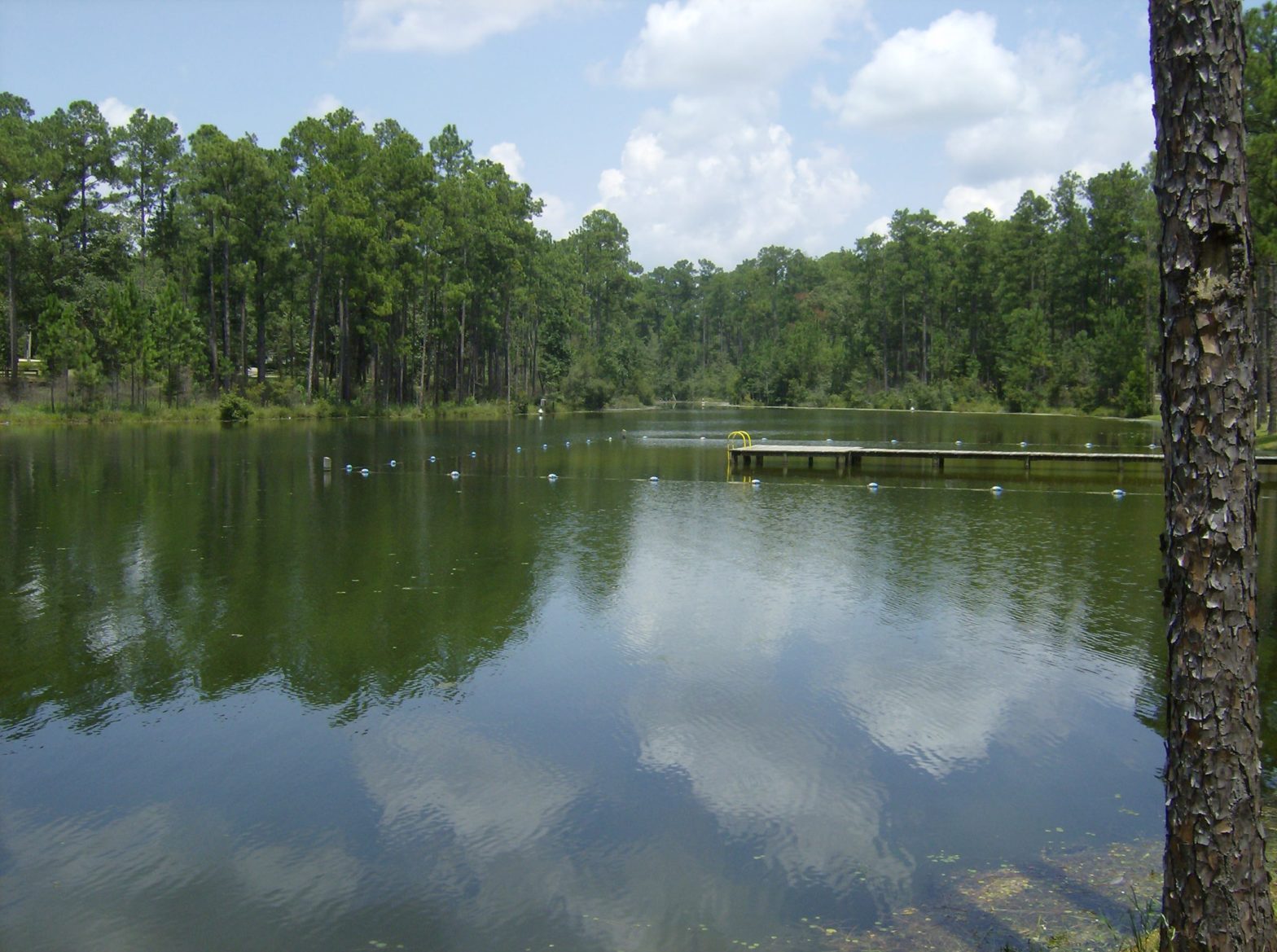
What comes to your mind when you hear the word ‘camping’? Dirt? Sweating? Canned food? Exaggerated campfire stories? Camping does have some long standing negative connotations to it. However, this fall, will mean something different to the campers out at Bear and Krul Lake. Constructed in 1959, Bear Lake made its debut to the public in 1961 and has had many generations of campers since then. Jim, 24 and Beth, 23 of New Orleans said they fell in love with the campsite when they arrived. “We were just looking for a campground and stumbled upon this one,” Jim said. We really like it because it’s quiet.” One of the main features of Bear Lake is the 4 mile trail that goes around it. Jim and Beth have walked it many times. It is often seen as a place of exercise and many long distance runners can be found going around the track. Canoeing and fishing is also one of the many features of the lake. Another trail that is often used is the “Sweetwater” trail that connects Bear and Krul Lake. Many campers from Bear will walk the short 1.3 miles to Krul to go for a swim. The lake is part of a cold water creek so the water stays cool. Swimming is only $2 a day and a lifeguard is almost always on duty. Crissa Sutton is one of the lifeguards at Krul Lake. Sutton’s role is just one of many in helping to keep the park safe. “On the weekends we have a lot people come in so I really feel responsible for those coming to swim,” Sutton said. The largest attraction at Krul Lake is the Munson Heritage Festival. The grist mill is one of the oldest buildings in the county. Joseph Zwierzchowski is a wildfire mitigation specialist who also helps oversee both Bear and Krul. Zwierzchowski knows the history of the lakes like the back of his hand. “They will usually run the grist mill at the festival which is the second weekend of October,” said Zwierchowski. “The mill used to run every day early on in the century but it slowed down when electricity made its way out here in the 1950’s.” Zwierchowski says that taking care of the forest require dedication and discipline to nature. He says the forest needs us as much as we need it. Campers who help out are actually doing the earth a favor when they do the little things like picking up the trash. “It really is a team effort to take care of the forest,” said Zwierchowski. To camp with electricity and water is $20.00 a night with a reduced rate for seniors or 100 percent disabled citizens. Camping without electricity and just water is $10.00. General questions can be answered and reservations made by calling 850-488-4724
This article originally appeared on Santa Rosa Press Gazette: Local September destination hot spots for campers
